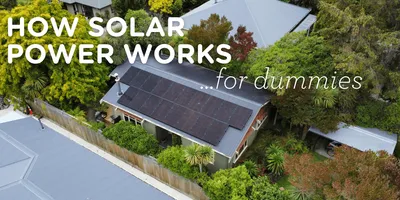Get off gas: why and how you should electrify your home
20/03/2025

Switching from a gas-powered household to an all-electric one isn’t just good for the planet, it could also save you $20,000! With rising gas prices and environmental concerns, making the leap to electrify your heating, hot water and cooking is important to consider. Let’s dive into why going electric is the way to go for a cleaner and brighter future.
Why should I get off gas?
It’s more expensive than electricity
Due to supply shortages and rising maintenance fees, gas prices have increased ~15% and are projected to only get more expensive. As an island nation, importing gas from overseas isn’t easy with no direct pipeline to Australia and the high costs to build liquefied natural gas terminals. Additionally, there’s the extra fees that come with having a gas connection. Consumer Powerswitch Manager Paul Fuge says people could pay up to $700 extra a year, which includes $30 monthly network fees, and you still need to have your separate electricity connection as well.
Though electricity prices are expected to rise in the short term, they’re predicted to fall again as the supply of renewable power grows. A study from Rewiring Aotearoa found that gas households could gain significant savings by switching to fully electric:
- Piped gas (heating, hot water and cooking): Switching could save $11,000 over 15 years (upfront costs and energy bills)
- Bottled LPG gas (heating, hot water and cooking): Switching could save $20,000 over 15 years (upfront costs and energy bills)
- Gas cooktop: Switching reduces 40% of your average gas bill
Electric is more energy efficient
Typically, heating and cooling is the biggest energy use in your home. Electric heat pumps are 300-400% more efficient than gas boilers, meaning that for each kilowatt of electricity they produce 3-4 times more heat.
Heat pump hot water systems use up to 70% less energy than gas models. Contrary to popular belief, high-efficient heat pumps are able to operate in temperatures as low as 0 degrees. Even with the higher upfront installation costs, many studies find that families of 4+ people would gain significant savings from switching to a hot water heat pump.
Having gas limits your choice of power plans
Many retailers don’t allow you to sign up for gas-only which reduces your choice of electricity plans. Some of the cheapest power providers don’t have gas as an option. Switching to electric gives you more agency over your energy.
Reduce your environmental impact
On average, a gas-powered home emits around 1,400kg of CO2 per year. In addition to carbon dioxide, natural gas also releases methane through its extraction, production, transportation, and can even leak when using gas hobs. Methane is 26 times more harmful than CO2 as it has a higher heat-trapping potential, making it a significant contributor to global warming and overall pollution. Burning natural gas in homes can also have health impacts, such as a higher risk of asthma, due to the exposure of nitrogen dioxide.
How can I get off gas?
Switch to electric appliances
- Electric heat pumps and hot water systems: Cleaner and more affordable, the annual operating costs of electric heat pumps are ~50% lower than a gas system.
- Reverse cycle air conditioners: For a cheaper heating and cooling alternative, try a reverse cycle air conditioner. They work by ‘absorbing’ heat from outdoors to warm the air in your home, rather than ‘creating’ heat energy, making them more energy efficient.
- Induction or electric cooktops: With the cost of electric cooktops decreasing significantly in the past decade, and their low health risk compared to gas stoves, they are the cleaner, cheaper choice.
Costs to switch
The costs to switch from gas to electric vary widely, but an MBIE report suggests it could be anywhere between $500-$2000 depending on the home and appliances needing disconnection.
The transition from gas to electric doesn't need to happen all at once. Replacing gas appliances with electric alternatives as they reach end of life is an affordable way to start electrifying your home and start saving.
Get help going green
Many banks in NZ offer green home loans to help with these energy efficiency upgrades and help you with other sustainable switches like getting solar, an EV or a rainwater tank. For example, ANZ and BNZ offer up to $80,000 at 1% fixed interest rate for 3 years.
Disconnecting your gas connection
Once you’ve switched all your appliances to electric, you can also completely disconnect your house from gas to avoid paying the monthly connection fees. Contact your gas retailer and they’ll work with your network provider to assess the work required. After providing you with a quote, the whole process can take between 4-6 weeks.
Getting off gas is a worthwhile switch to secure a cleaner and more affordable energy future for your home. Electrifying your home has never been easier and we would love to be part of it!







